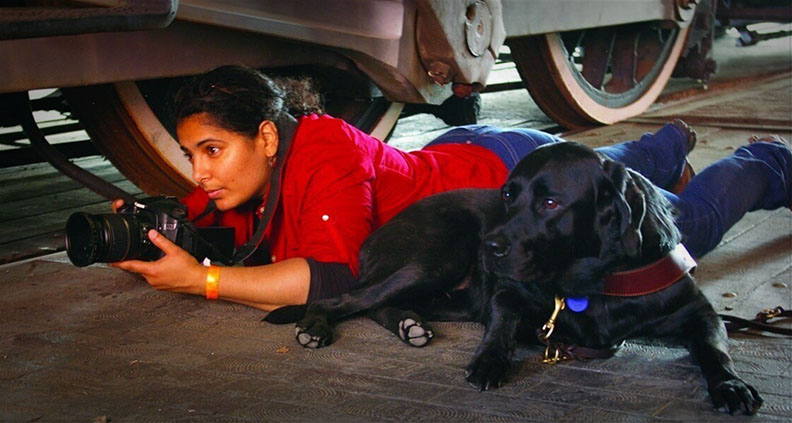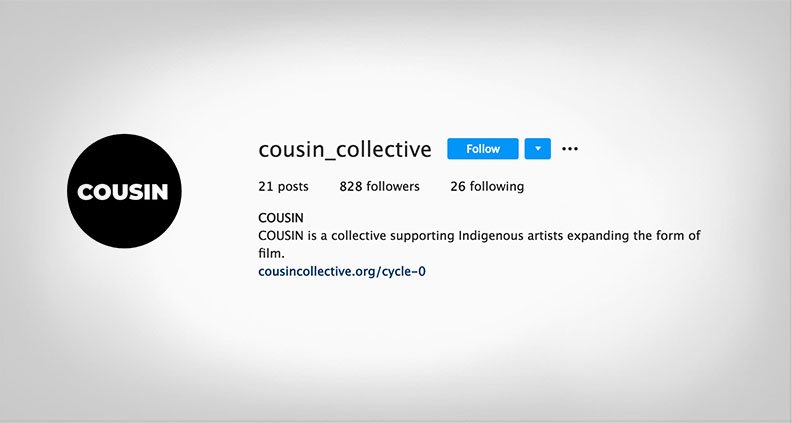From the Archives: Building Film Coalitions, Empowering Collectives and Reflecting on How to Do Better
In this special guest post, Film Independent Director of Artist Development Lisa Hasko explains the process of putting together our recent panel “Collective Building + Social Change” at the 2020 Film Independent Forum—including what it taught her about thoughtful collaboration around issues of social change. NOTE: an earlier version of this post originally ran in August.
***
Whenever I see a need for artists to have a safe space to share their knowledge, ideas and experiences, it’s one of my professional joys to help bring those people together. Ask any of my colleagues, they’ll tell you how much I love a good roundtable discussion! I believe this impulse comes from a desire for community, to hear from individuals and groups whose voices need to be heard and ultimately (in a cautiously optimistic fashion) contribute towards making positive social change.
In Film Independent’s Artist Development department, we love pulling together all the key players—from decision-makers and gatekeepers, to all those impacted by the power imbalances structurally embedded within our industry and beyond—to talk it out and maybe come up with a better plan.
And you know what? I don’t always get it right.
When I was asked to collaborate on a few panels for the Film Independent Forum earlier this month, I got excited about a particular roundtable discussion I’d been thinking about for a while. While the catalyst wasn’t directly tied to the pandemic or the Black Lives Matter movement, it was because of these critically important moments that having this discussion felt even more urgent. And so, the Collective Building + Social Change panel was born.
Over the past five years or so, the entertainment industry has seen a rise of collectives and groups supporting filmmakers through solidarity, community and visibility—often supporting creators who have traditionally been left out of the film and television industry. It felt important to bring these groups together to talk about why they formed, highlight their work, identify what they’re up against, let them get to know each other and to build and even stronger network of industry activism: a collective of collectives.
It felt important that the “industry”—meaning emerging and established creators of color joining together for solidarity, but especially white creators and white decision-makers in positions of power—to understand the ways that Hollywood systematically excludes filmmakers from marginalized communities.
This panel was selfishly motivated, too. I wanted to know how to be a better collaborator in amplifying the efforts of these collectives (made up of individual filmmakers whom I know personally and professionally) and use my own position of privilege as Director of Artist Development to move the needle of change in our field—one so clearly broken when it comes to equity and inclusion, of which I’m a part. Film Independent has a strong track record of supporting underrepresented filmmakers. However, like most organizations reconciling with how they have harmed or helped our BIPOC, disability and LGBTQI+ colleagues, we know we need to do better.

Rather than inserting myself into the conversation as a moderator, I handed the keys over to creators of color who have built these collectives from the ground up. Collaborating with filmmakers Set Hernandez Rongkilyo, representing the Undocumented Filmmaker Collective, and Day Al-Mohamed from FWD-Doc: Documentary Filmmakers with Disabilities was a dream. Prior to bringing the larger panel together, we talked about the intentions and goals for the panel, and about complicated issues of structural power imbalances and the emotional labor that folks from marginalized groups must carry during large-scale social movements.
Hearing Set and Day’s honest critiques of those intensions and goals, and learning from panelists Okema Moore (actress/writer/director/producer representing the Black TV & Film Collective), Victoria Chalk (editor representing A-Doc) and Alex Lazarowich (director/producer representing COUSIN) led me to a few realizations that I wanted to share. Because in reality, I don’t know how many of those white creators or white executives in decision making positions actually tuned in for our conversation. I still question whether it was right of me to sit out on the conversation and stay in the shadows, instead putting the burden onto my BIPOC, filmmakers with disabilities and LGBTQI+ colleagues to carry a load that I had created.

So, in the spirit of listening, sharing and owning one’s mistakes, here are a few things I’d do differently in the future or have recently learned about how to be a better co-conspirator for change and amplify underrepresented voices.
- Avoid silos when programming panels and round tables: include BIPOC, LGBTQI+ creators and filmmakers with disabilities for their talent, artistry and experience, of which there is plenty, not just the diversity and inclusion panels.
- Add into yearly budget planning line items for paying moderators and panelists for their time and expertise.
- Ensure the content that is created is accessible for the communities being represented on the panel.
- Do specific outreach to industry gatekeepers and decision makers inviting them to be there for the conversation—or even join us.
- Support and amplify the fundraising initiatives of BIPOC/LGBTQI+/filmmakers with disabilities-led organizations and build partnerships with them when working on programs serving their communities.
In closing—and from the mountain tops!—hire BIPOC and LGBTQI+ creators and filmmakers with disabilities as executives, directors, producers, showrunners, editors, cinematographers and composers for their talent, stories and vision. Seriously. There is no excuse.
Industry Equity Resources to check out…
- Documentary Producers Alliance Inclusion and Structural Equality Guide (Documentary Producers Alliance)
- The Documentary Future: A Call for Accountability (Sonya Childress and Natalie Bullock Brown)
- Open Letter to Undocumented Filmmakers to the Producers of Living Undocumented (Undocumented Filmmakers Collective)
- Get Involved with the Undocufilmmakers Collective (Undocumented Filmmakers Collective)
- Resources from the Undocumented Filmmakers Club (Undocumented Filmmakers Collective)
- Asian American Documentary Network
- Documentary Filmmakers with Disabilities (FWD-Doc)
- Live Captioning, Closed Captioning, and Audio Descriptions (FWD-Doc)
Film Independent promotes unique independent voices by helping filmmakers create and advance new work. To become a Member of Film Independent, just click here. To support us with a donation, click here.